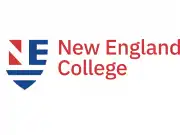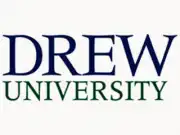Bachelor's degree programs in the USA
- Overview of Bachelor's Programs in the USA
- Features of Bachelor's Programs in the USA
- Advantages of Bachelor's Programs in the USA
- Disadvantages of Bachelor's Programs in the USA
- Admission Requirements for Bachelor's Programs in the USA
- Application Documents for Bachelor's Programs in the USA
- Job Search After a Bachelor's Program in the USA
- FAQ – Frequently Asked Questions

Bachelor of Arts - History
New England CollegeHistory students at New England College train to be researchers, analysts, and communicators. They also get the chance to see history being made: As a reminder that America was born in the New England towns and forests, the presidential campaign season starts in New Hampshire every four years.

Bachelor of Arts - Music
Drew UniversityDrew's music program fosters and facilitates the cultivation of a comprehensive and integrated comprehension of music by providing opportunities for historical study and research, solo and ensemble performance, theoretical and style analysis, and original composition. Our curriculum is founded on…

Bachelor of Science - Neuroscience
Drew UniversityDrew's neuroscience bachelor allows students to investigate the brain from a variety of perspectives, including biology, chemistry, computer science, philosophy, physics, and psychology. And, with hands-on laboratory and research experiences, as well as Drew's one-of-a-kind RISE program, students…

Bachelor of Arts - Philosophy
Drew UniversityA major in philosophy can fit almost any career path. A logical education, a degree in philosophy develops critical thinking and written and oral communication skills — providing a strong basis for success in a wide range of professional endeavors. Drew's graduates often head to law school at such…

Bachelor of Arts - Physics
Drew UniversityFrom the structure of the cosmos to light, atoms, and fundamental particles, Drew’s physics curriculum covers it all with an eye toward flexibility to meet student interests and ambitions. Speaking of aspirations, around 75 percent of our great physics students (think national scholarships and prizes)…

Bachelor of Arts - Political Science
Drew UniversityDrew's political science program offers students a strong foundation in American politics, international affairs, comparative politics, and political philosophy. Political science majors collaborate closely with instructors to investigate politics and government from a variety of perspectives.

Bachelor of Arts - Psychology
Drew UniversityPsychology is a highly sought-after major at Drew University. It exposes students to the different intriguing subfields of psychology and allows them to plan their academic route to discover their passions. Expand your viewpoints to perceive personal, societal, and organizational challenges through…

Bachelor of Arts - Public Health
Drew UniversityPublic health research influences policy discussions on illness prevention, health-care reform, and climate change. Drew's public health major is multidisciplinary, including the biological sciences, social sciences, and humanities, equipping students for employment in epidemiological research, health…

Bachelor of Fine Arts (BFA) - Illustration
New England CollegeLearn how to solve creative issues, create compelling concepts, and use your drawings to tell tales. Through NEC's Visiting Artists series, the most renowned professionals in the field will evaluate your work if you're enrolled in our BFA in Illustration program. Additionally, you will benefit from…

Bachelor of Arts - Integrated Studies in Philosophy and Literature
New England CollegeIntegrated Studies in Philosophy and Literature is a distinctively designed program at NEC. Few educational institutions offer a comprehensive program that so meticulously incorporates its curriculum. You can anticipate taking classes from professors in both fields, which will offer a distinctively…
Briefly About Bachelor's Degree Programs in the USA
Obtaining higher education in the United States opens wide opportunities for career growth and personal development. Bachelor's programs at American universities are considered among the most prestigious in the world due to their flexible learning system, modern methodologies, and high level of graduate preparation.
A bachelor's degree in the USA is the first stage of higher education, typically lasting 4 years (in some cases 3.5-5 years depending on the program and student performance). Upon completion, graduates receive the following diplomas:
- Bachelor of Arts (BA) — бакалавр искусств
- Bachelor of Science (BS) – бакалар наук
In addition to standard BA and BS programs, many universities offer specialized degrees:
- Bachelor of Fine Arts (BFA) — for creative specialties
- Bachelor of Engineering (BEng) — in technical universities
- Bachelor of Business Administration (BBA) — in business schools
The average age of bachelor's students in the USA is 18-22 years, though many institutions actively accept "adult" students (25+ years), offering them flexible learning formats.
Key characteristics of bachelor's programs in the USA:
- Program flexibility – students can choose courses from different fields.
- Practical orientation – many courses include internships and projects.
- International recognition – diplomas from American universities are valued worldwide.
Features of Bachelor's Programs in the USA
The American education system differs from Russian and European systems. Here are the key features:
- Liberal Arts Education
In the first two years, students study general education disciplines (history, mathematics, natural sciences), then choose a specialization (major). This allows changing direction if interests evolve. - Credit System (Credit Hours)
To earn a diploma, students must complete 120-130 credits (1 credit ≈ 15-16 hours of study). - Emphasis on Independent Work
Students learn to analyze information, work in teams, and present their projects. - Double Major Opportunity
Students can simultaneously study two disciplines, for example economics and computer science. - Tutoring and Mentoring System
Most US universities provide:- Personal academic advisor
- Mentor from upperclassmen
- Career counselor
- International student coordinator
- Undergraduate Research Opportunities
Many bachelor's students participate in:- Research projects under professor supervision
- Interdisciplinary research
- Publications in academic journals
- Conferences and symposiums
Advantages of Bachelor's Programs in the USA
- High quality education – 8 of the top 10 universities worldwide are in the USA (according to QS World University Rankings).
- Wide program selection – over 4,000 institutions offer hundreds of specializations.
- Internships at leading companies – Google, Apple, Microsoft collaborate with universities.
- Flexibility and individualized approach – students can change specializations and select courses.
- International environment – students from different countries exchange experiences.
- Comprehensive student support – help centers, legal services, career placement offices
- Unique exchange programs – students can study abroad for a semester/year or earn dual degrees with partner universities
Disadvantages of Bachelor's Programs in the USA
- High cost – tuition at top universities ranges from $30,000–80,000 per year.
- Competitive admissions – requires SAT/ACT scores and high English proficiency (TOEFL/IELTS).
- Long adaptation period – different education system and culture may cause stress.
- Restrictions for international students – must obtain work visa (H-1B) after graduation.
- Additional high expenses – beyond tuition, must account for health insurance, study materials, transportation, food and housing
- Rigorous academic requirements – many universities mandate attendance, strict deadlines, regular assessments
Admission Requirements for Bachelor's Programs in the USA
To enroll in an American university, applicants must provide:
- High school diploma (GPA minimum 3.0/4.0).
- SAT (minimum 1200) or ACT (minimum 24) scores.
- English proficiency certificate: TOEFL (minimum 80) or IELTS (minimum 6.5).
- Motivation letter and/or essay.
- Teacher recommendations.
- Additional achievements (olympiads, volunteer work, sports).
To improve admission chances, it's recommended to:
- Complete pre-college programs
- Participate in university summer schools
- Have volunteer experience
- Prepare a portfolio for creative specialties
Documents for Bachelor's Program Admission in the USA
| Document | Description |
|---|---|
| Diploma + translation | Notarized English translation |
| SAT/ACT results | Minimum score varies by university |
| TOEFL/IELTS certificate | English proficiency confirmation |
| Motivation letter | Statement of purpose (500–1000 words) |
| Recommendations | 2–3 letters from teachers |
| Resume (CV) | Academic and extracurricular achievements |
| Financial guarantees | Proof of financial capability |
Job Search After Bachelor's Degree in the USA
Graduates may stay in the USA through Optional Practical Training (OPT) program, allowing work for 1–3 years depending on specialty. Popular employment fields:
- IT and engineering (Google, Tesla, Amazon).
- Finance and consulting (Goldman Sachs, Deloitte).
- Marketing and media (Facebook, Netflix).
Long-term employment requires H-1B visa (lottery).
Regional employment specifics:
- California: high demand for IT specialists
- New York: best opportunities in finance and media
- Texas: developed energy sector
- Illinois: prospects in engineering and logistics
Alternative options:
- Entrepreneurship programs for startups
- Returning to home country with US degree
- Continuing education in master's programs
FAQ – Frequently Asked Questions
- How much does bachelor's education cost in the USA?
Annual tuition at public universities – $20,000–40,000, at private – $30,000–80,000. - Are there scholarships for international bachelor's students in the USA?
Yes, some universities offer merit-based scholarships and need-based aid for international students. - Can you enroll in US bachelor's programs without SAT?
Some universities (e.g. University of Chicago) have waived SAT requirements, but most require SAT or ACT. - What English level is needed for US bachelor's admission?
Minimum TOEFL 80 or IELTS 6.5 is required. - Which specialties are most in-demand for US bachelor's degrees?
Most sought-after: computer science, business, engineering, biomedicine. - What's the minimum budget needed for bachelor's student living expenses in the USA?
Beyond tuition, approximately $12,000−18,000 annually for housing, food and other expenses depending on state. - Can you transfer from a Russian university to US bachelor's programs?
Yes, but typically no more than 50% of credits are recognized, requiring 4-8 months for detailed program comparison. - Are there quotas for international students in US bachelor's programs?
No formal quotas, but top universities rarely accept more than 10-15% international students per intake. - What exams are needed for creative specialties admission to US bachelor's programs?
Beyond standard requirements, often need portfolios, additional creative tests, auditions. - How to choose a university for bachelor's studies in the USA?
Consider: university ranking by specialty, institution size, research centers, graduate employment rates, location and climate.